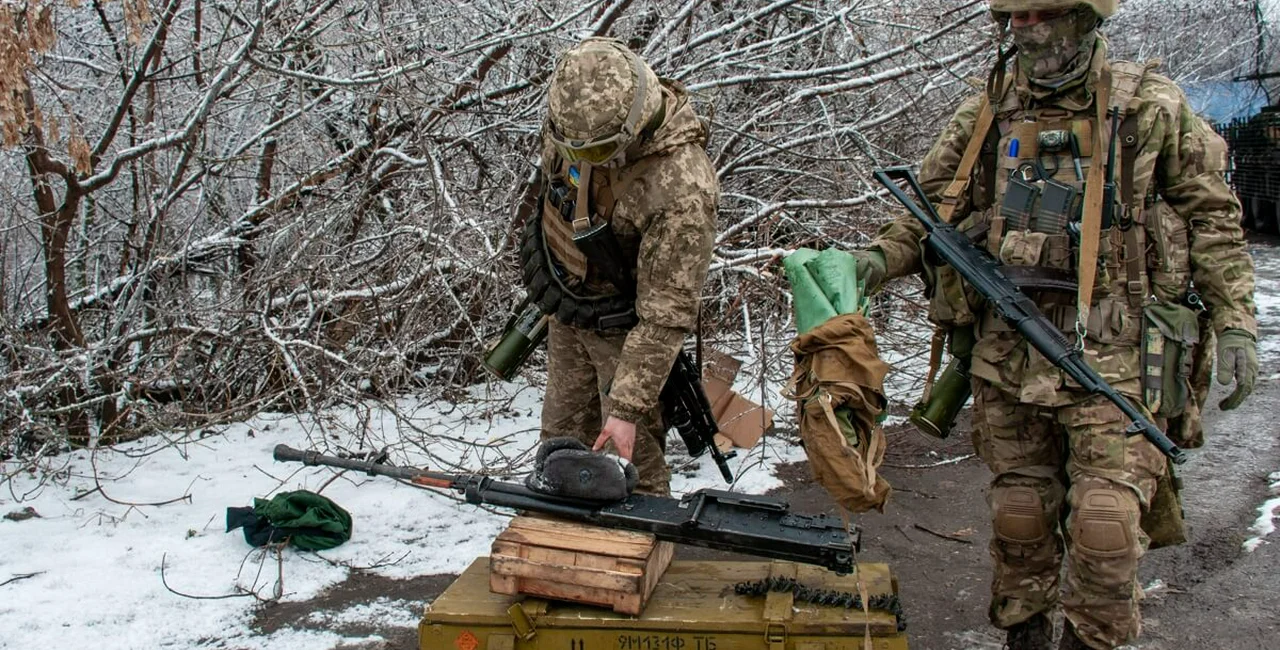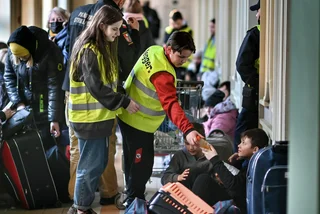On February 26, the Ukrainian Embassy launched a crowdfunding campaign to secure finances for weapons purchases. The campaign has gone viral in the Czech Republic and internationally, allowing people to contribute to Ukraine’s defense in the same way they might adopt an animal at a zoo; only this time, their donations go towards buying howitzers, fighting vehicles or personal arms.
Other crowdfunding campaigns for Ukraine have opened around the world in recent days, but the Czech campaign is the only one to focus specifically on the purchase of weaponry. Money is immediately transferred from the Embassy’s account to arms manufacturers to expedite exports.
Czech Deputy Defense Minister Tomáš Kopečný said that although the campaign was intended solely as an initiative for Czechs “it turned out to be global since its first hours, with people around the world sending their contributions.”
Individuals, companies and institutions have sent CZK 316 million to the fundraising account so far. Money can be sent to the account in Czech crowns, euros or dollars. Details are available at a dedicated website set up by the Embassy.
Money raised through the fundraising campaign goes to purchasing military material produced by Czech manufacturers. Among the Czech Republic's stockpile of weapons are those the Ukrainian army already uses.
“We have precisely those weapons which the Ukrainian military has been operating for decades, so they don’t need days or weeks (to learn to use them). They can operate them immediately,” said Kopečný.
As Czechs consider arms to be a traditional part of their industry as well important national import, the fundraiser feels uniquely Czech scope. In a country that experienced a twentieth-century Soviet occupation, the invasion has struck a particular nerve, leading to increased interest in military preparedness on the domestic front.
Arms e-shops have reported a huge increase in demand for weapons, ammunition, and combat training courses since the outbreak of war. Zbrane.cz has reported a 50 percent increase in user traffic, with interest particularly high in the private purchase of weapons and ammunition.
Shooting ranges are also seeing a 50 percent spike in interest; Česká zbrojovka, a manufacturer of weapons and organizer of courses for firearms license holders, has confirmed much higher levels of demand for weapons training.
Meanwhile, the Czech Army has confirmed a significant increase in applications. “Since February 24, we have registered increased interest in joining the active reserve forces and in participating in voluntary military exercises. We have also seen increased interest in serving in the army itself,” said Colonel Magdalena Dvořáková from the Office of the Chief of the General Staff. Dvořáková claimed interest in the active reserve force is now ten times higher than it was before Russia entered Ukraine.
To become a member of the active reserve forces, you must: be aged 18-57; be a Czech citizen; have a clean criminal record; be medically fit; have basic educational qualifications; and sign a declaration against support for extremism.
As of today some 300 people have asked the Presidential Office to grant them an exception from the banned engagement in a foreign military, mainly to be able to fight for Ukraine, said Prague Castle.
Ukrainian Ambassador to the Czech Republic Yehven Perebyinis said that Ukraine has “brave soldiers, but we need arms.”
Supporters of Ukrainian independence worldwide can continue to donate to this unique Czech crowdfunding scheme run in collaboration with the Ukrainian Embassy in Prague.
The Czech people have also stepped in to provide humanitarian aid for Ukrainian refugees, with hundreds of millions of crowns already raised through public collections.
Speaking today, Perebyinis said that material aid packages should be brought to large collecting points from which deliveries are dispatched to Ukraine. He said that people should not donate toys and clothes, but rather medicines and fuel.












 Reading time: 3 minutes
Reading time: 3 minutes 





























